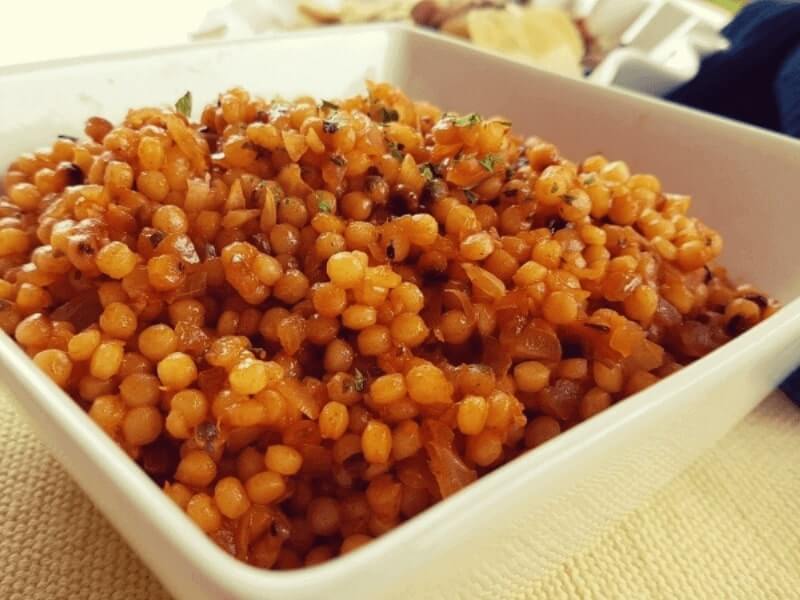After the hummus and the falafel, "Ben Gurion's Rice" or "Israeli Couscous" takes the spotlight in the ongoing historical-political-culinary debate. The true origin of this staple Israeli food is a matter of complexity, and, as in politics, the perspective varies depending on whom you ask.
Knesset member Ahmad Tibi sparked a heated debate on Twitter when he questioned the authenticity of "Ben Gurion rice." He tweeted, "For years, it has been claimed that 'Ben Gurion rice' is an original Israeli dish. But, in reality, it's Palestinian 'Maftoul,' essentially couscous from North Africa. What's next, Krembo?" (Krembo, incidentally, was a 19th-century Danish food product). He added, "BTW, I love my mother's Maftoul when made from scratch."
אפרופו בן גוריון וסגירת חשבון הסטורית: שנים נטען כי ״פתיתי בן גוריון״ הן מאכל ישראלי מקורי. אז לא. פתיתים אלה הם בעצם ״מפתול״ פלסטיני. (مفتول) הרי הוא קוסקוס ( צפון אפריקה) . מה נשאר לכם,קרמבו? ( קרמבו הוא מאכל שייצרו בדנמרק במאה ה19).
— Ahmad Tibi (@Ahmad_tibi) September 18, 2023
ואני אוהב מפתול של אמא שעושה אותו ידנית. pic.twitter.com/0OZ0BPevNp
The Twitter discussion quickly escalated, with hundreds of comments debating the history of Israeli Couscous. But what's the connection between Ben Gurion and this culinary tale? The dish, known as Petitim to most Israelis or "Ben Gurion's rice," was born in Israel in the early 1950s when food was scarce. David Ben Gurion approached the company "Osem" and requested an affordable substitute for rice. He envisioned the dish resembling "Farfel," a food from his European-Jewish background.
Once the product hit the market and became an industrial staple, it was named after Ben Gurion. Traditional Farfel, made from flour and eggs, shares similarities with pasta. Typically, it was prepared by grandmothers in Jewish townships in Europe due to its time-consuming nature and the skill and experience required.
For years, "baked flakes" or Farfel were available in all Israeli supermarket chains, but the landscape has changed. Farfel is now a rarity, found primarily in ultra-Orthodox supermarket chains.
מפתול הוא "פתיתים" שמבוססים בורגול וקמח חיטה (או רק קמח חיטה) ומזכירים בניראות שלהם פתיתים. התפקיד הקולינרי וצורת הבישול שלהם דומה. מצד שני, יש את המאכל האשכנזי פרפלך: "פתיתים" אפויים מבצק אטריות ביצים.
— Lior Shapira (@LiorShapira2) September 18, 2023
מה שקרה בארץ הוא שילוב של השניים: זה דומה לפרפלך, אבל מוכן יותר כמו מפתול. > pic.twitter.com/IlstHViRdz
However, the story doesn't conclude there. Israeli Couscous, in some form or another, exists worldwide. It's known as "Barkokash" in North African cuisine and "orzo" in Italy.
Additionally, Palestinian Maftoul is a part of this list of similar dishes. Yet, MK Tibi's comparison overlooks a crucial detail: the classic Maftoul is made from bulgur wheat and water, whereas the Israeli version is crafted from flour and eggs, akin to pasta dough.
In the end, the debate over the origins of Israeli Couscous, and other Israeli staples such as Hummus and falafel, are all a reminder of the multifaceted nature of food, politics, and history, where bringing up the name of one simple dish can stir up complex discussions.


